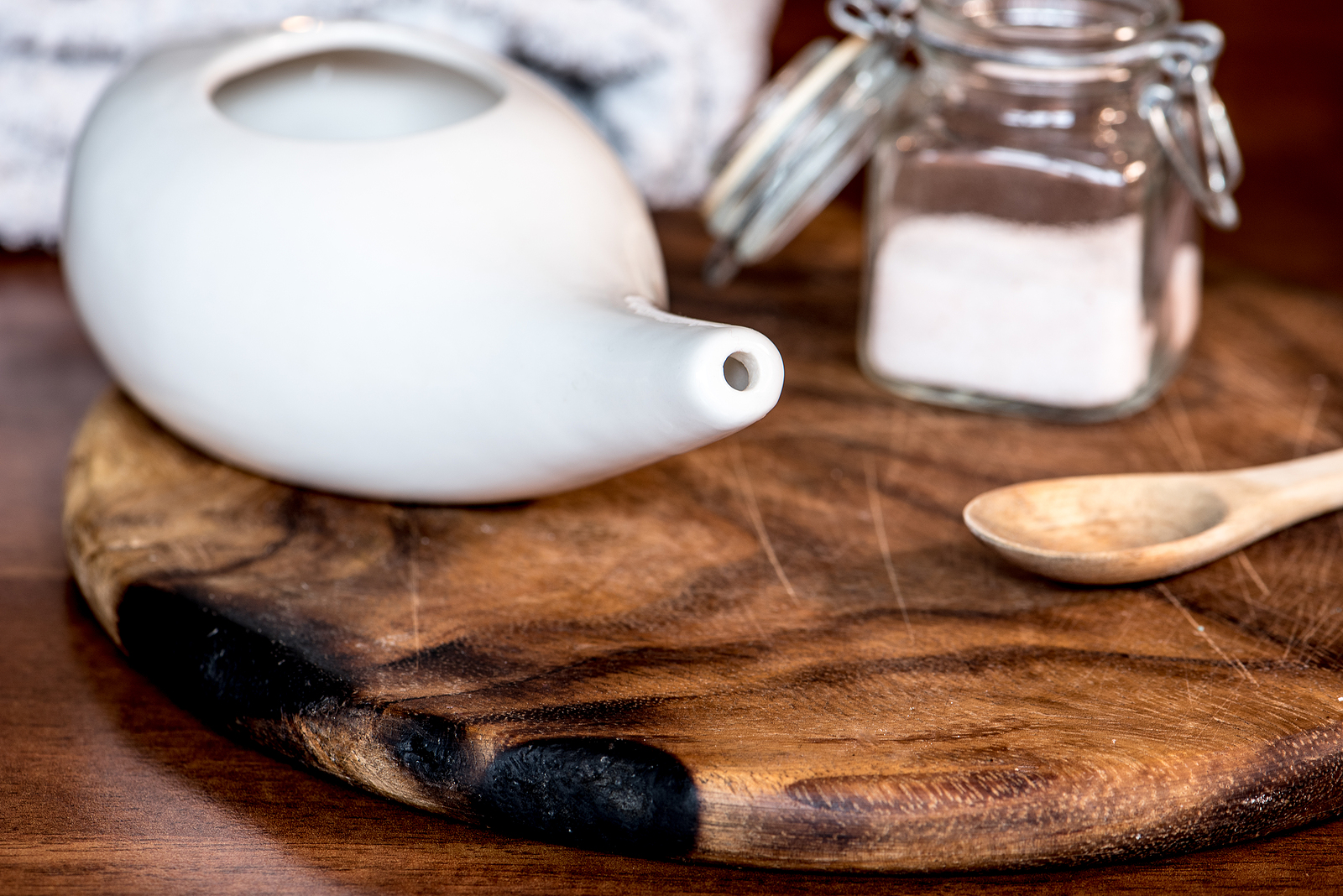The rich history of the neti pot spans centuries. It is a time tested nasal irrigation tool with recent gain in popularity for its incredible soothing effects and medicinal benefits. Whether you’re seeking relief from allergies, sinus congestion, or simply looking for overall enhanced well-being, the neti pot might be the missing link in your self care routine.
What is a Neti Pot?
A neti pot is a small teapot shaped vessel made of glass, ceramic, or medical grade plastic. It is used for nasal irrigation, a gentle process of rinsing the nasal passages with a saline solution. Using a neti pot can clear your nasal sinuses, reduce nasal congestion, and promote overall respiratory health.
History of the Neti Pot
With roots in Ayurvedic medicine dating back thousands of years in India, “Jala Neti” or purification with water is a staple treatment for many yogis and Ayurvedic healers. It is believed to promote balance within the body. While its roots run deep, this practice has transcended time and cultural boundaries to become a widely known and practiced therapy across the globe.
Benefits of Nasal Irrigation
-
Nasal Congestion Relief: If you suffer from chronic or recurring nasal sinus infections, the neti pot may be your new best friend. Nasal irrigation with a neti pot gently flushes out irritants, allergens, and excess mucus. It combats discomfort and alleviates painful congestion while reducing inflammation and promoting clear, healthy breathing.
-
Allergy and Cold Management: During allergy season or when battling a pesky cold, the neti pot can offer welcome relief. Nasal irrigation alleviates nasal symptoms like congestion, sneezing, and itching, by rinsing away mucus buildup and mucosal irritants. Many folks use their neti pot at the onset of a cold to help flush out viruses and bacteria on the nasal mucosa, with the hope of shortening the duration of illness.
-
Enhanced Well-Being: In addition to its respiratory benefits, using a neti pot can improve various aspects of well being. Practicing nasal irrigation can have a calming effect, leaving you feeling refreshed and rejuvenated. Individuals who use a neti pot report improved sleep, increased energy, and enhanced concentration with its use.
Nasal Irrigation Technique and Safety
Following proper technique is important for reducing risk and discomfort when engaging in neti pot therapy. If possible, meet with a local yogi or naturopathic doctor to help advise you on proper technique.
The Technique:
-
Tilt your head to the side, bringing one ear toward your shoulder, and gently place the spout of the neti pot into your upper nostril.
-
Begin pouring the saline solution slowly into the nostril. The solution should flow from this nostril around and out the opposite nostril.
-
Adjust head position as needed to ensure this smooth continuous flow.
-
Breathe through your mouth during the practice.
-
Use half of the pot for one side, then repeat on the other side.
It is important that the solution you use is the appropriate concentration and the water is clean. You can purchase premixed solutions, or mix your own. If mixing your own solution, use either distilled or sterile water. Tap water or other potentially contaminated water may contain harmful bacteria or parasites, which can lead to potentially serious infections. If using tap water, boil it for 3-5 minutes and let it cool before using. Be sure to properly clean your neti pot before and after each use to reduce the risk of contamination. If using a plastic neti pot, you may need to replace it more frequently to maintain safe hygiene standards.
Conclusion
The neti pot offers a rejuvenating remedy for nasal congestion unlike any other. Remember to practice safely by using the proper water and saline solutions, practicing proper technique, and maintaining cleanliness. Enjoy the numerous benefits of nasal irrigation from clearer sinuses and easier breathing to improved well-being.
As always, consult with your healthcare provider before beginning this practice to ensure it is appropriate for you. The above article is not to be taken as personal healthcare advice.

